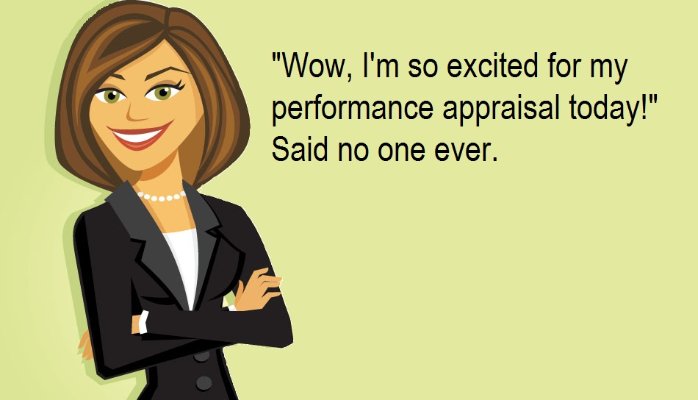Performance appraisals don’t work. There, I said it.
Years ago I worked for a small business where performance appraisals were undertaken yearly. In the three years I was with the company I was never once subjected to a review of my performance. This ladies and gentlemen is very common practice! Why? Well, who likes sitting through a review?
Managers in general are not comfortable in playing the role of judge. It is why so many performance reviews are conducted well past their due date. Even when salary increases are linked to evaluations, managers still avoid facing their employees to discuss their achievements, or lack thereof them, over the course of the year. Naturally if you consider yourself a high performing employee, hitting all your KPI’s, this will create some dissension between you and your supervising manager. So much so that an employee may just adopt the attitude that the dangling of the carrot is simply an empty promise, a trick if you like to get them to perform well in their job. So I ask, why would one bother to focus on achieving their KPI’s if management is simply paying lip service to the promise of a reward? It’s a cruel and unfair practice that leaves employees feeling undervalued and looking for an exit.
So many of us are self-motivated and take great pride in completing our tasks to a high level. We don’t need the carrot. Does this then mean that an annual performance review is unnecessary and management should simply recognise a job well done with the presentation of a pay rise when earned? Rewards are best served when unexpected and at the time of the achievement. This brings me to my next gripe. Performance reviews are traditionally about what an employee has accomplished in recent times. Not the past twelve months. Again, this is not delivering a fair analysis of ones efforts at work. And all the employee is seeking is an impartial assessment.
Giving honest feedback can seriously backfire for a manager. And they all know it! Even when the review is positive, an employee can often mistake the feedback as negative and overtly judgemental. Naturally this results in them resenting their reviewer. I mean, if one feels they have put in a one hundred percent effort and are told that they have under performed, yikes! That is not going to be a friendly conversation. Consequently managers often choose their words carefully and can, if they think it will result in a more harmonious outcome, lie to their employees about their performance. This completely defeats the purpose of the performance appraisal so I again state, performance appraisals do not work!! And why would a manager want to purposefully run the risk of harming the development of their employees? Destroy all workplace trust and create friction within the office? The performance appraisal, designed to improve performance, can actually be quite damaging to the overall performance of a company once conducted. It is why so many businesses are now banning individual workplace reviews.
For those of you who have never experienced a performance review, let me quickly run through the conventional process. A manger writes a report about an employee and their ability to execute their role and achieve desired results. The report is a response to a standardised set of questions and/or ratings of an employee’s ability to carry out specific tasks and accomplish expected outcomes. The document is supplied by the HR department. The employee may also be asked to complete a self-assessment. A manager may do their due diligence and research an employee’s actual results achieved, or they may respond based on what they can remember or deem to be the employee’s achievements. Opinion over fact is often favoured as it takes time to backtrack and review twelve months of data. Where ratings such as ‘excellent’, ‘good’ and ‘needs improvement’ are the choices for responding, an employee has to rely on the manager’s interpretation of those ratings. Again, the result can be subjective. In fact, a comparison between the manager’s review and the employee’s review can be radically different. You can see how easily this good intentioned meeting can turn into a clash of opinions and why managers are loathe to execute them.
Conducting a performance review can be quite confrontational. For all parties involved. And how many of us like confrontation. Even though the intention is to give an employee the opportunity to learn, grow and excel, it is rarely seen that this is achieved. In fact, in many instances the performance review can be repackaged as an invitation to an employee to leave the company, such is the psychological impact of ‘constructive’ feedback. So what is the alternative? If you focus on collaboration, professional development, coaching and empowering people to succeed, you will find your answer.








